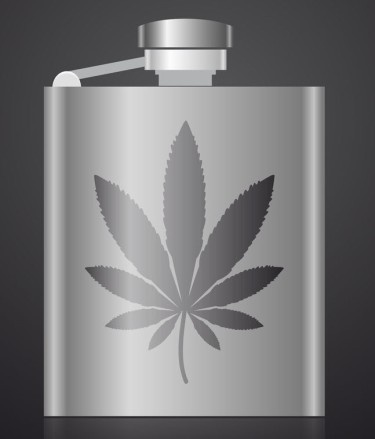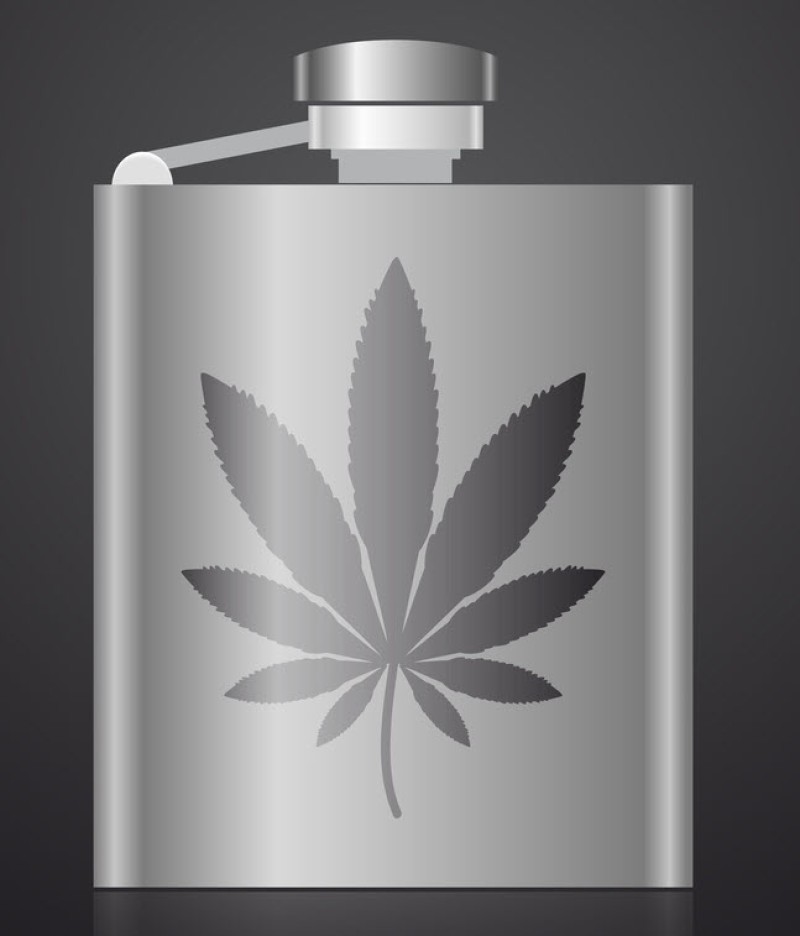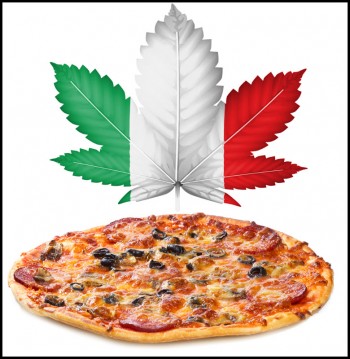
In recent years, the cannabis industry has experienced explosive growth, with innovative products reshaping how consumers experience cannabis. Among the most exciting developments is the emergence of THC-infused beverages—particularly cannabis seltzers—that offer a novel, convenient, and socially acceptable alternative to traditional alcohol consumption. Now, a coalition of THC-infused beverage companies is taking this trend a step further by launching a large-scale, groundbreaking study involving 2,000 participants to explore how cannabis drinks can serve as a healthier and more enjoyable substitute for alcohol.
This ambitious research initiative, backed by some of the most prominent cannabis beverage brands, aims to collect real-world data on consumer experiences with THC-infused beverages in social and everyday settings. The study promises to shed light on the potential benefits, challenges, and overall impact of cannabis drinks on mood, wellness, and lifestyle choices, potentially revolutionizing the way people think about social drinking.
In this article, we will explore the background of THC-infused beverages, the details of the study, its significance for consumers and the cannabis industry, and the broader implications for public health and social norms.
The Rise of THC-Infused Beverages: A New Frontier in Cannabis Consumption
Cannabis Meets Beverage Innovation
Cannabis beverages have emerged as one of the fastest-growing segments in the cannabis market. Unlike smoking or vaping, which can be harsh or socially stigmatized, cannabis-infused drinks offer a discreet, familiar, and often more enjoyable way to consume THC (tetrahydrocannabinol, the primary psychoactive compound in cannabis). These beverages include sparkling seltzers, teas, coffees, shots, mixers, and even dry powders that can be mixed with water or other liquids.
The appeal of cannabis drinks lies in their ease of use, consistent dosing, and the ability to combine cannabis with flavors and formats that appeal to a broad range of consumers, including those who do not traditionally use cannabis. THC beverages are often marketed as wellness products that promote relaxation, stress relief, and social enjoyment without the negative effects commonly associated with alcohol, such as hangovers, impaired judgment, or aggressive behavior.
Cannabis Seltzers: The New Social Drink
Among cannabis beverages, THC-infused seltzers have gained particular popularity. These sparkling, lightly flavored drinks resemble alcoholic hard seltzers, making them an attractive alternative for people seeking a similar social experience without alcohol’s downsides. THC seltzers typically contain measured doses of THC, allowing consumers to control their intake more precisely than with edibles or smoking.
The rise of cannabis seltzers coincides with growing trends toward mindful drinking and wellness-focused lifestyles. Many consumers are reducing or eliminating alcohol consumption due to health concerns, personal preferences, or lifestyle changes. THC-infused beverages offer a compelling option for those looking to maintain a social, celebratory atmosphere while avoiding alcohol’s negative effects.
The Study: Recruiting 2,000 Participants to Explore THC Beverages as Alcohol Alternatives
Recognizing the potential of cannabis beverages to transform social drinking, a coalition of THC-infused beverage companies—including Cycling Frog, Happi, Keef, Leisuretown, Mary Jones, and Pabst Labs—has partnered with MoreBetter, a data research firm, to conduct a landmark study. The study seeks to recruit 2,000 adults across legal cannabis states in the U.S. to participate in a three-week research program designed to capture real-world data on the effects of THC beverages compared to alcohol.
The primary goals of the study are to:
-
Understand how consumers experience THC-infused beverages in everyday and social contexts.
-
Measure changes in mood, anxiety, relaxation, sleep quality, and overall wellness when substituting cannabis drinks for alcohol.
-
Evaluate consumer preferences, satisfaction, and potential side effects.
-
Collect data that can inform product development, marketing, and public health policies around cannabis beverages.
Study Design and Methodology
The study is structured in three phases over three weeks:
-
Baseline Week (Week 1): Participants track their mood, alcohol consumption, sleep quality, and overall wellness without using any THC beverages. This baseline data establishes a control for comparison.
-
Intervention Weeks (Weeks 2 and 3): Participants receive free THC-infused beverages from a range of brands and product types, including seltzers, shots, dry powders, and mixers. They are encouraged to consume these products as an alternative to alcohol and continue logging their experiences daily.
-
Data Collection and Analysis: All participant data is collected via the Releaf App, a cannabis-focused wellness platform that allows users to record subjective experiences such as relaxation, anxiety levels, mood, social enjoyment, and any side effects. The app also tracks frequency and quantity of beverage consumption.
This design allows researchers to compare participants’ experiences before and after substituting alcohol with THC beverages, providing valuable insights into the potential benefits and challenges of cannabis drinks as alcohol alternatives.
Early Findings and Consumer Feedback
Although the study is ongoing, preliminary data and early phases have yielded promising results that underscore the potential of THC beverages to disrupt traditional alcohol consumption patterns.
Positive Consumer Experiences
-
Preference for THC Drinks: Early survey results indicate that 72% of participants expressed a preference for THC-infused beverages over alcohol for future social occasions.
-
High Satisfaction Rates: Approximately 96% of participants reported positive experiences with the cannabis drinks, highlighting feelings of relaxation, improved mood, and enhanced social enjoyment.
-
Reduced Negative Side Effects: Many participants noted fewer adverse effects compared to alcohol, such as the absence of hangovers, reduced irritability, and less impaired coordination or judgment.
Wellness Benefits
Participants frequently reported that THC beverages helped reduce anxiety and stress, improved sleep quality, and contributed to a sense of calm without the grogginess or lethargy often associated with alcohol consumption. These wellness benefits align with the broader trend of consumers seeking products that support mental health and balanced lifestyles.
Challenges and Considerations
While the feedback has been largely positive, some participants mentioned challenges such as:
-
Onset Time: THC beverages can take longer to produce effects compared to alcohol, which may require users to adjust expectations and consumption habits.
-
Dosing Sensitivity: Some consumers found it challenging to find the right dose, especially those new to cannabis.
-
Legal and Social Barriers: The study is limited to states where THC beverages are legal, and some participants expressed concerns about stigma or workplace policies.
Industry Implications: Shaping the Future of Cannabis Beverages
The data collected from this large-scale study will provide cannabis beverage companies with critical insights into consumer preferences, dosing habits, and desired effects. This information can guide the development of new products tailored to specific wellness goals, flavor profiles, and social occasions.
For example, brands may create lower-dose options for beginners, functional beverages targeting relaxation or sleep, or mixers designed for cannabis cocktails. Understanding how consumers use these products in real life will help companies innovate responsibly and meet market demand.
Marketing and Consumer Education
One of the biggest hurdles for cannabis beverages is consumer education. Unlike alcohol, where effects and social norms are well established, THC drinks require clear communication about dosing, onset times, and expected effects. The study’s findings can help brands craft accurate messaging that empowers consumers to make informed choices.
Additionally, demonstrating positive consumer outcomes may reduce stigma and encourage more adults to consider cannabis beverages as a viable alternative to alcohol.
Regulatory and Public Health Impact
As cannabis legalization expands, regulators are grappling with how to classify and oversee THC-infused beverages. Data from this study could inform policy decisions related to labeling, advertising, dosage limits, and public safety.
Public health officials may also benefit from understanding how cannabis drinks affect consumption patterns, particularly whether they reduce harmful alcohol use or introduce new risks. The study’s real-world evidence could contribute to balanced, science-based regulations that protect consumers while supporting industry growth.
Social and Cultural Significance: Redefining Social Drinking
-
Mindful Drinking and Wellness Culture
The rise of THC-infused beverages coincides with a broader cultural shift toward mindful drinking—where consumers seek to reduce or eliminate alcohol for health, wellness, or personal reasons. Cannabis drinks offer an alternative that aligns with this trend by providing relaxation and social enjoyment without alcohol’s negative health impacts.
This shift could lead to new social norms where cannabis beverages become a mainstream option at parties, dinners, and celebrations, much like wine or beer today.
-
Destigmatizing Cannabis Use
Large-scale studies and positive consumer experiences help normalize cannabis use by framing it as a wellness and lifestyle choice rather than a taboo or illicit activity. As more people try THC beverages and share their experiences, social acceptance is likely to grow.
This destigmatization can encourage more open conversations about cannabis, reduce misinformation, and foster a more inclusive cannabis culture.
How to Participate in the Study
For adults interested in participating, the study is open to those who:
-
Are 21 years or older.
-
Reside in states where THC-infused beverages are legally available.
-
Are willing to track their alcohol and cannabis beverage consumption and wellness experiences via the Releaf App.
-
Are open to substituting cannabis drinks for alcohol during the study period.
Participants receive free THC beverages from a variety of brands and product types, making it a unique opportunity to explore cannabis drinks firsthand while contributing to important research.
Conclusion
The recruitment of 2,000 participants for this pioneering study marks a significant milestone in the evolution of cannabis beverages. By systematically exploring how THC-infused drinks perform as alternatives to alcohol, this research promises to unlock valuable insights that could reshape consumer behavior, product innovation, regulatory frameworks, and social norms around cannabis use.
As cannabis seltzers and other THC beverages continue to gain popularity, understanding their real-world impact is essential for consumers, industry leaders, and policymakers alike. This study not only highlights the potential of cannabis drinks to offer a healthier, more enjoyable social experience but also signals a broader cultural shift toward mindful, wellness-oriented consumption.
For those curious about cannabis beverages or seeking alternatives to alcohol, this study offers a unique chance to participate in cutting-edge research and experience the future of social drinking firsthand.
DRINKERS WANT TO SWITCH TO CANNABIS, READ ON...
56% OF BEER DRINKS SAY THEY WOULD SWITCH TO CANNABIS BEVERAGES






